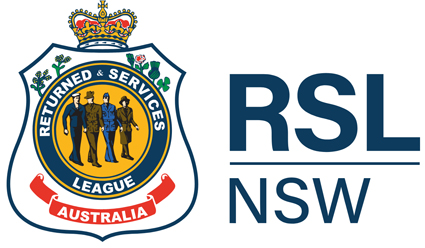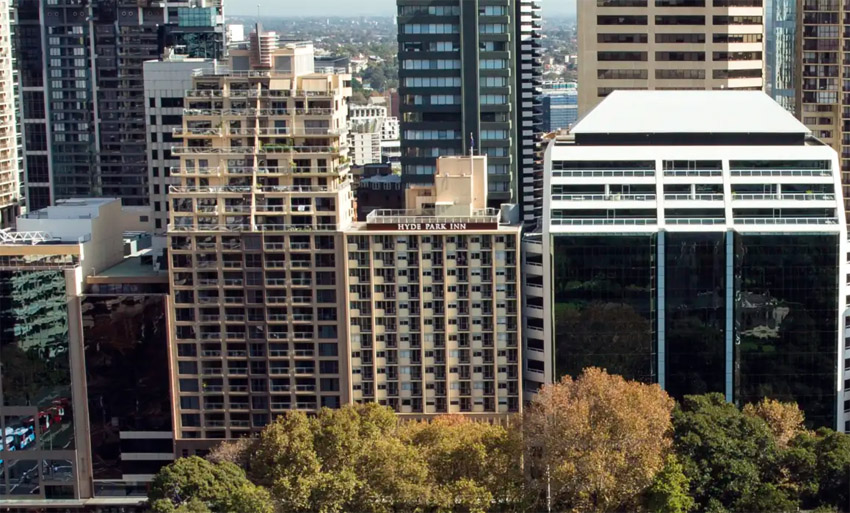An unwonted instance of infighting has erupted within RSL NSW as board members of its Anzac House charitable trust sue the organisation over a share of an existential real estate sale.
A legal claim was filed in the NSW Supreme Court this month by RSL NSW president Mick Bainbridge – acting from his other role, as chair of the Anzac House Trust (AHT), along with four other board members.
In 2020 RSL NSW sold the Hyde Park Inn, at 271 Elizabeth St, and a neighbouring office building on Castlereagh St to property developer Central Element, for $95 million. The deal involved a long, delayed settlement, scheduled for June 2026.
The ex-servicemen’s organisation was said to be operating at a loss at the time and was relying on securing the proceeds, planning to diversify its investments toward a reliable income stream to fund frontline services. Disconcertingly, questions arose over both the sale price and completion date, and it faced legal procedures from the purchaser.

AHT was established in 1949, for the purpose of executing the charitable objectives of RSL NSW and maintaining its headquarters, at Anzac House. It holds roughly $27 million in assets and is steered by a Board of Management (BOM).
On 7 May Bainbridge startled directors by broaching the notion at an RSL NSW board meeting that Anzac House Trust may have a claim to the proceeds of the Hyde Park Inn sale.
The President points to “a lot of deficiencies in governance” in RSLs in the 70s, 80s and even 90s, which came to light out of the Bergin inquiry into RSL NSW fundraising.
Maintaining he is “just fulfilling my role” on the AHT BOM, Bainbridge stresses they have an obligation to ensure the funds are managed appropriately.
The Supreme Court action comes as he accuses RSL NSW of consistently refusing to provide the AHT with the relevant minute books and financial records concerning ownership of the Inn, and he alluded to the possibility that the RSL’s stance could become the subject of further litigation.
“I guess the question you would have to ask yourself is, what are they trying to hide?” he said.
Louise Sullivan, chair of RSL NSW, corresponded with Bainbridge and the NSW Supreme Court requesting information that could help them determine the ownership status, offering that there are likely “very serious financial or other impacts” on it should the ownership be under any legal question.
However, less than a month later Sullivan followed up with advice said to be from general counsel that they were quite confident RSL NSW owned the property, purchased in the 1940s, because its name was on the title.
The claim has drawn in the office of NSW Premier Chris Minns, whose delegate on the Trust is Office of Veterans Affairs director Caroline Mackaness, named as second plaintiff in the proceedings. Mackaness notes the AHT BOM’s motive in its fiduciary obligations.
Having repeatedly requested access to the minute books, late June the AHT BOM resolved to undertake its own “urgent independent, expert and confidential review” of the history of ownership, funding and acquisitions, including that of the Inn.
Bainbridge took to social media, offering that they simply wanted to better understand various historic transactions relating to its funding, and expressing disappointment at Sullivan’s “combative approach”, while remaining unapologetic for his actions.
“I have the obligation to ensure that the trust is governed appropriately,” he said.
In July RSL NSW quietly settled its dispute with Central Element, alleviating concern that the sale could fall through.
It reiterates it has no objection to the relevant documents being inspected, although declined to provide physical records without further clarity, noting access is “subject to agreeing on suitable terms to protect the integrity of the historical records”.
The organisation has stipulated the records must not be taken off site, and says it has offered to digitise them or allow supervised access.
In a statemen last week, it described the action as “unnecessary, disproportionate and a waste of resources”. Sullivan went further to point out that proceeds of the sale “underpins the financial sustainability” of RSL NSW and its future.
It refutes any claim that that it had refused to provide access to the documents and offers it is “increasingly concerned” that the AHT BOM might be misappropriating charitable funds to conduct investigations into RSL NSW and its assets.
“RSL NSW has invited the plaintiffs to discontinue the proceedings so that those involved can focus their energies and attention to more important charitable objectives.”

